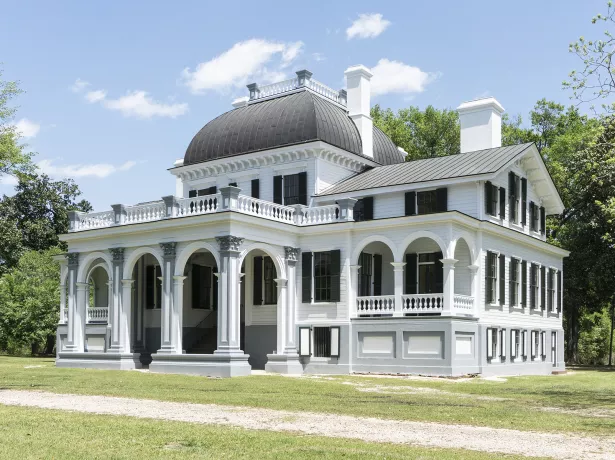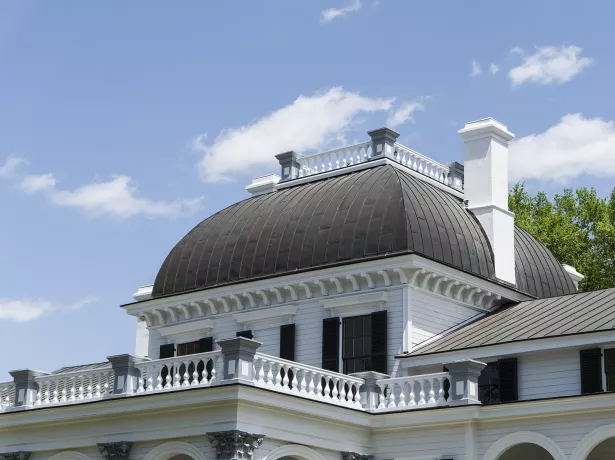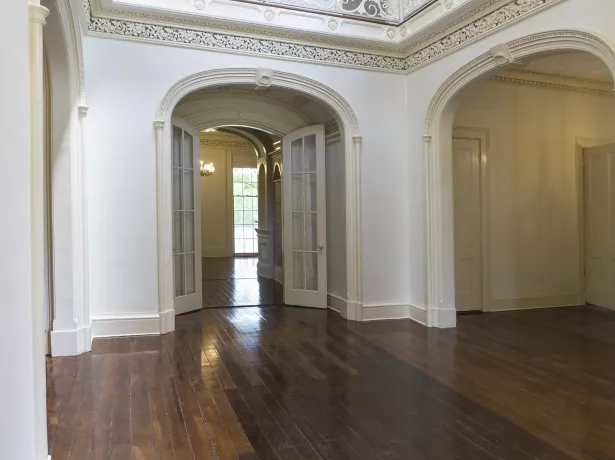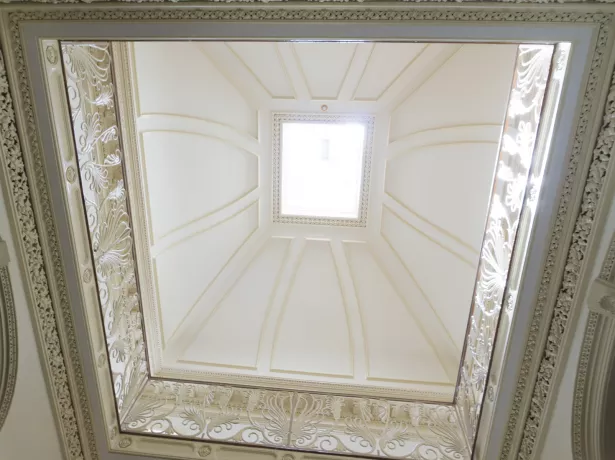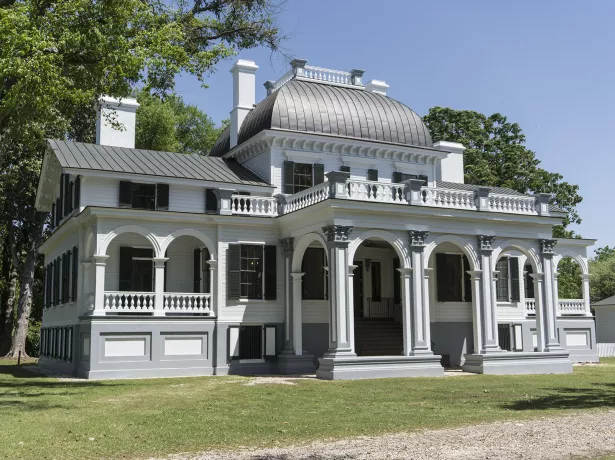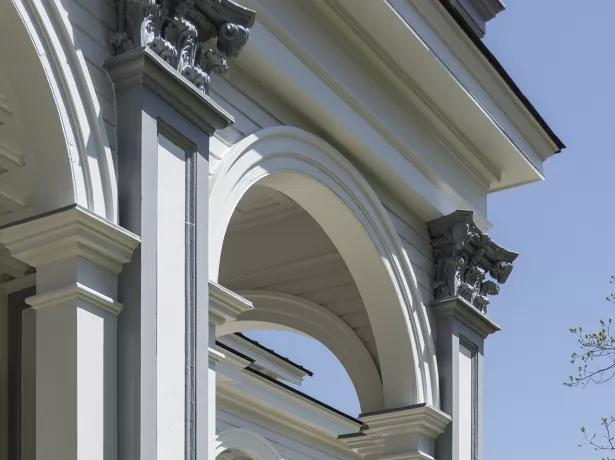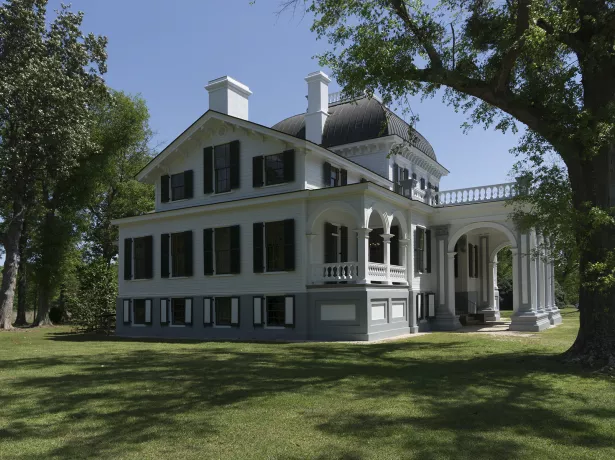Kensington Mansion
Kensington Mansion
Kensington is an antebellum site long recognized as a historic landmark in Richland County. Recent work to the property focused on maintaining the historical integrity of the mansion. It is considered a hybrid restoration and rehabilitation because it included preserving, repairing and/or replacing existing fabric, while restoring and upgrading systems to ensure the property is functional and safe. Maintenance and repairs were necessary after the mansion roof sustained damage from an ice storm in 2014. Work on the mansion included a full roof replacement and significant interior and exterior repairs.
“Sylvamo, formerly International Paper, has done an outstanding job at Kensington. The restoration and rehabilitation of two of the site’s structures shows the company’s commitment to ensuring that this nationally significant property is preserved and protected for future generations. Historic Columbia is delighted to join Sylvamo in re-introducing Kensington to the public.” - Robin Waites, Historic Columbia, executive director
History
Kensington Mansion is a Renaissance Revival Villa style mansion built between 1852-1854 as part of the Headquarters Plantation. It has 29 rooms and 12,000 square feet of floor space. Stylistically, Kensington is a contradiction. At its most basic, the home is a wooden farmhouse. The construction materials and design reflect the owners’ need for functionality. The Italianate and Second Empire flourishes, on the other hand, are lavish and wedged whimsically into the design. While both styles are significant in their own rights, the combination found at Kensington makes the site unique in South Carolina. They reflect its owners’ experience in the antebellum South: existing in a culture entirely dependent upon slave-based agriculture while simultaneously seeking luxury and wealth on an international scale.
Kensington’s owners, Colonel Richard Singleton and later his son Matthew R. Singleton, enslaved several hundred people across a network of plantations in Richland, Orangeburg, and Sumter districts at the time of the mansion’s construction. Much of what is known about Kensington Mansion and Headquarters Plantation on topics ranging from indoor plumbing to horse training to the heart wrenching separation of enslaved families comes from letters written by the Singleton family, the memoir of Jacob Stroyer–who was enslaved at the site as a child– and the inventory and appraisals of both Richard and Mathew R. Singleton, who died at the beginning and end of the mansion’s construction, respectively.
Sylvamo, formerly International Paper and Union Camp, purchased the Kensington property in the early 1980s and restored the mansion after it had been used as a storage area for farm equipment, fertilizer, and feed for animals. Over the years, Sylvamo has used the property for a variety of company and community purposes and the property has had varying levels of public access. At this time, Kensington will be opened for select tours one to two times per year to offer the community a chance to learn about the site.
